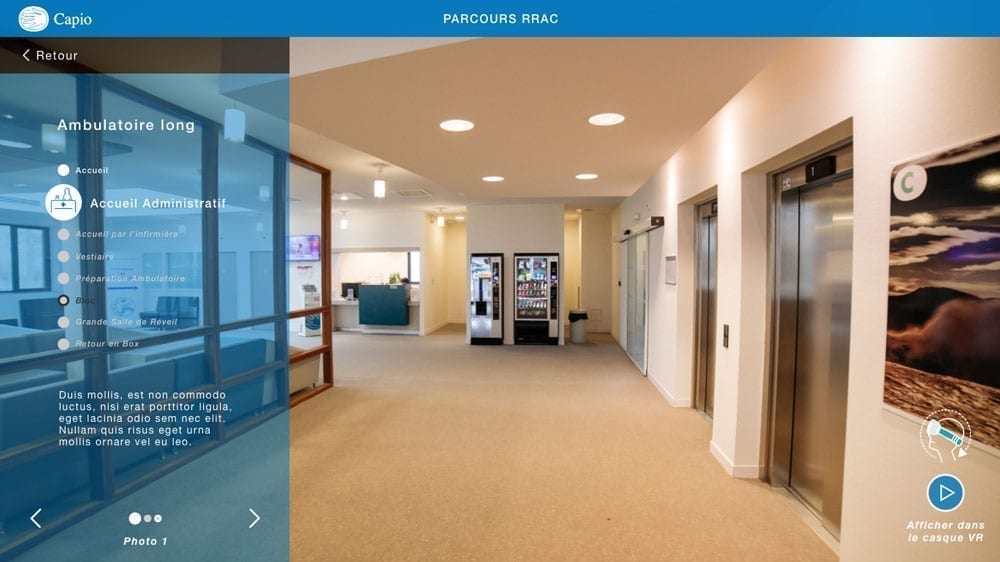In order to improve the quality of patient care, the Belharra clinic wanted to strengthen preoperative information through virtual reality technologies. Thus, by previewing the care path with the caregiver, the patient will create a memory footprint that will reduce stress during the procedure.
“The main interest is to create a notion of déjà-vu, which will reassure and reduce anxiety. Virtual reality has a very strong memory footprint so when a patient wakes up in the recovery room, he will have already visualized the room and will be less disoriented” explains Rémy Alonso, Tech Lead at onepoint.
An application developed by onepoint associated with a virtual reality headset allows a 360° immersion at each stage of the course. In this way, patients can talk about what they see and feel with the caregiver, who share their experience on the screen.
“The patients’ feedback is very satisfying. They are more aware of their care pathways and feel reassured and more confident” says Caroline Lhuillier, a pre-operative consultation nurse. “They leave the consultation with all the answers to their questions. The attendant also appreciate this device. They understand the waiting time needed and can organize their schedule to use this time differently.”
This reduction of anxiety through familiarization with the environment and the different phases of the operation reduces postoperative risks and promotes enhanced recovery after surgery (ERAS) of the patient.
The Enhanced Recovery After Surgery (ERAS) is an innovative, patient-centered mode of care. Initiated in the 1990s in the Nordic countries by Professor of Digestive Surgery Henrik Kehlet, it is a concept that aims at allowing the patients to get their functional abilities back faster after surgery, and so find more quickly his family environment and his daily activities, safely.

